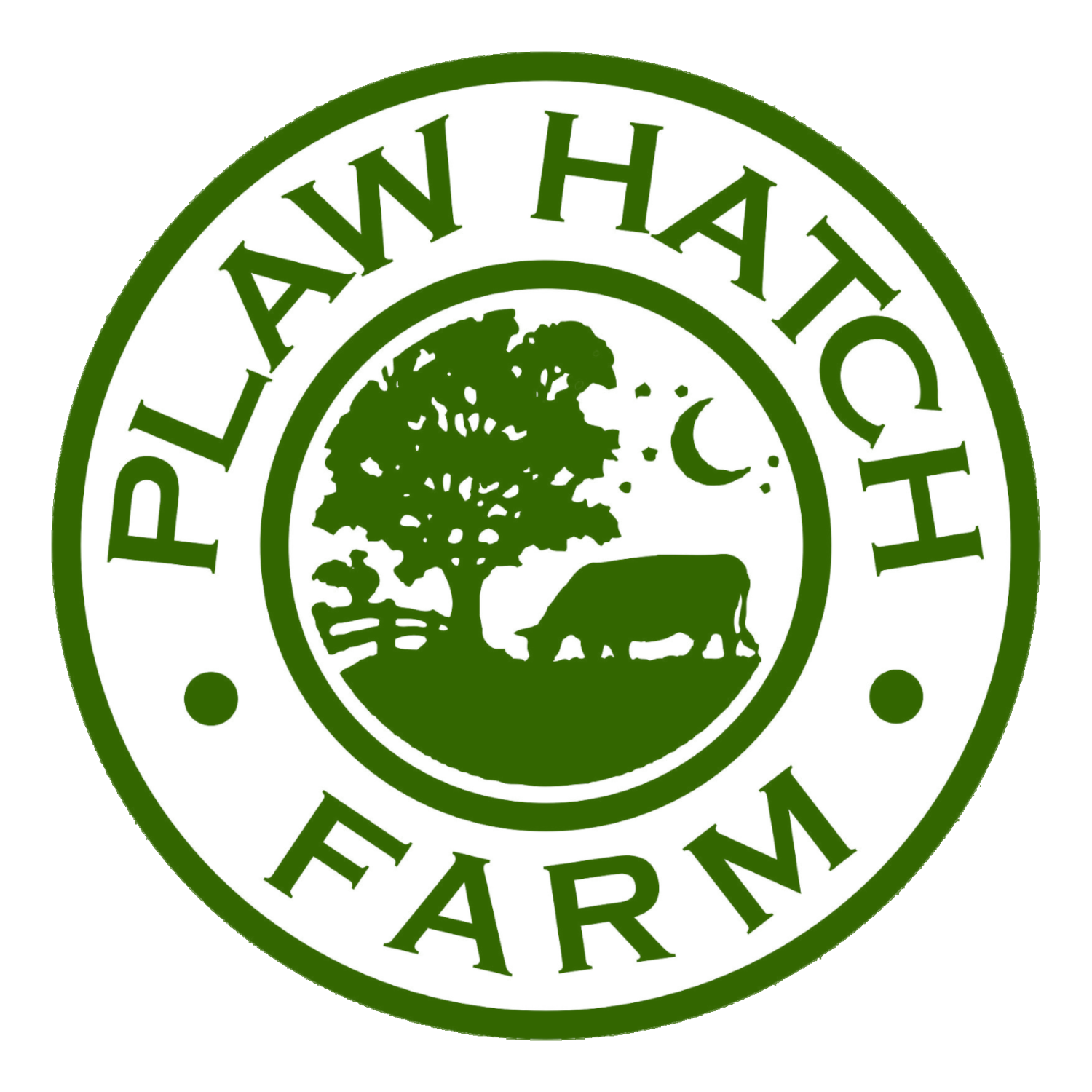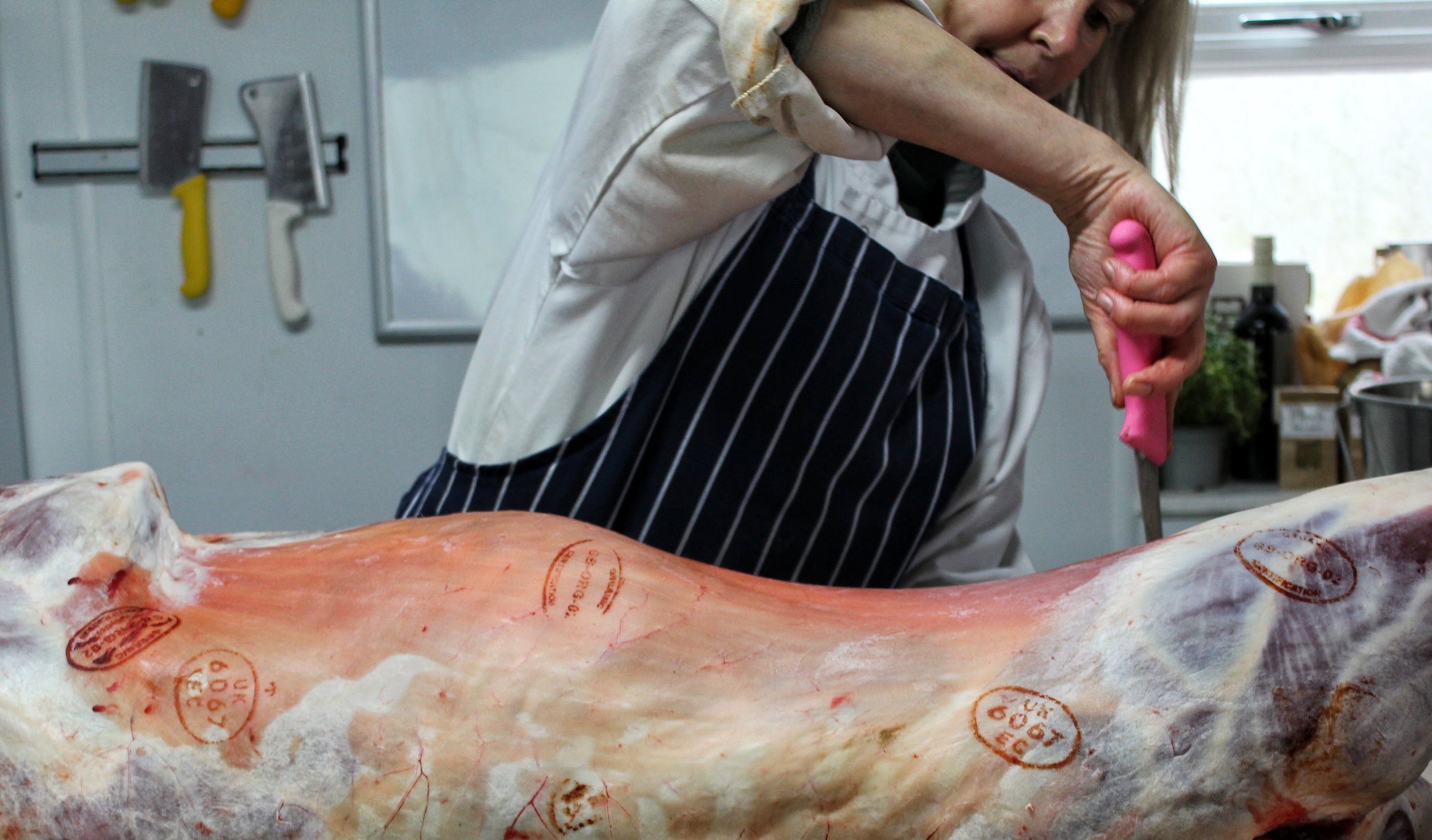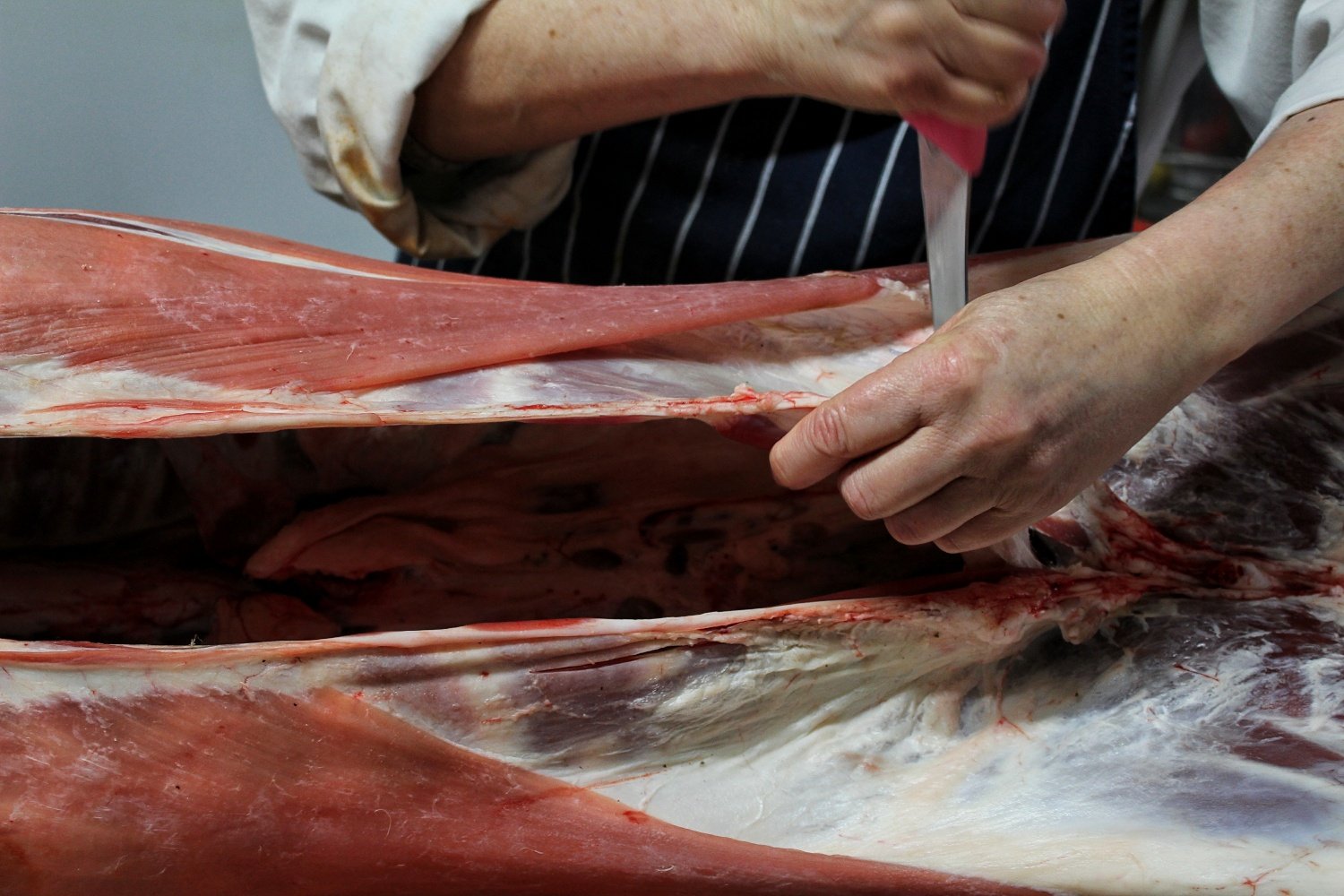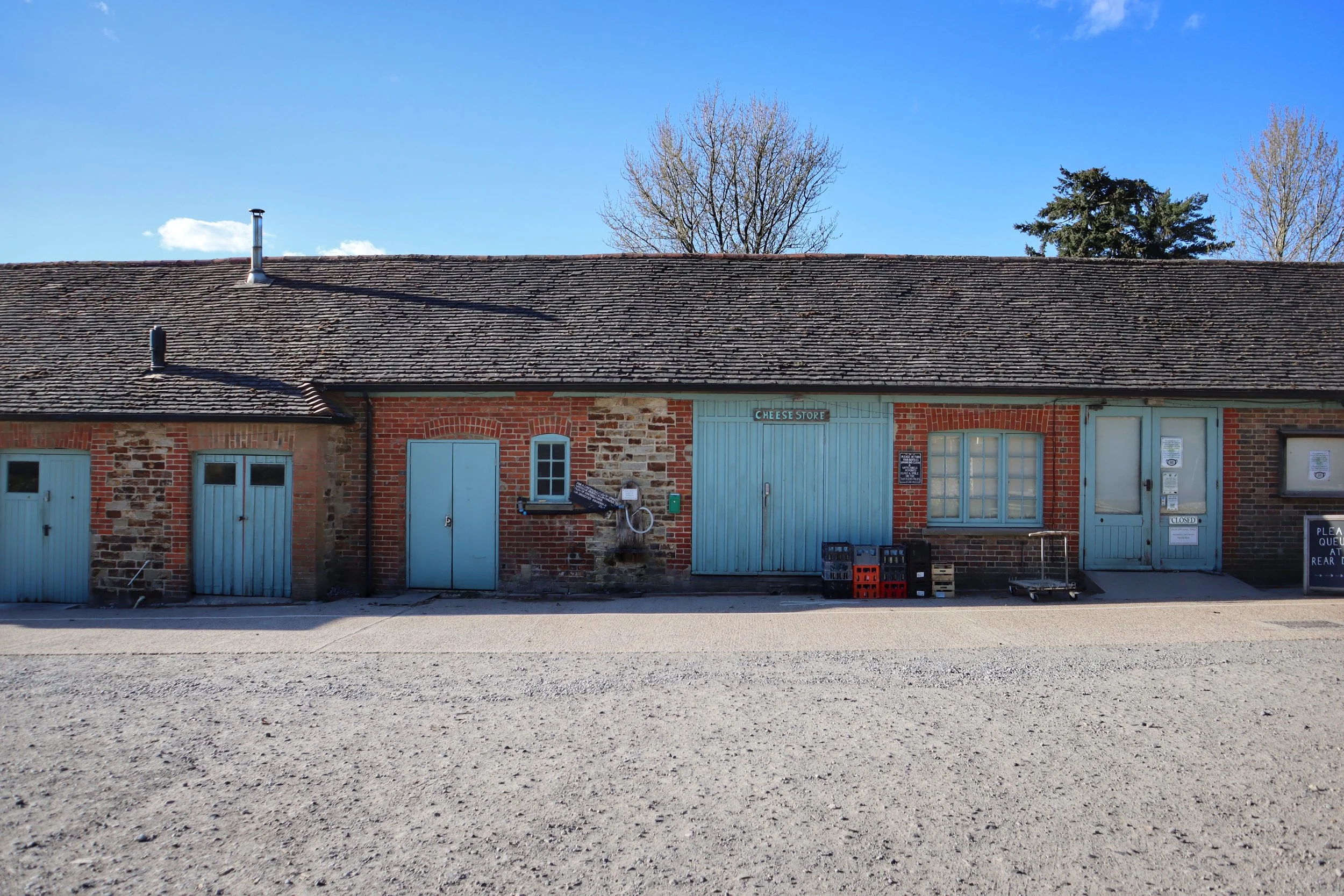Regenuary | Veganuary
Jayne Duveen
It is the month of Veganuary, and, on the one hand, I applaud and respect vegans for raising awareness of the damages caused by mass food production. On the other, I feel proud to be a part of the Plaw Hatch team that rears and butchers beef, lamb and pork. Proud because Plaw Hatch farmers past and present rebelled against the modernised farming industry and have fought hard to remain loyal to farming that puts the wellbeing of their animals before ‘economies of scale’.
Animals at Plaw Hatch do what animals naturally like to do. They go out to pasture for most of the year (the cattle only come into barns when the land becomes very wet and can be damaged by their hooves). The pigs can wallow, dig, and sunbathe. The sheep are interfered with as little as possible and lamb in the spring when sheep naturally like to lamb.
The breeds of animals are hardy and native. There is little or no stress and there is no need for the animals to be routinely wormed or vaccinated.
The numbers are small, just 35 milking cows, 60 sheep, 35 beef animals, 2 breeding sows. Not the numbers that you hear being boasted about in the farming press, the latest shocking news being that China has begun work on the construction of a 100,000 cow dairy unit to supply the Russian market with milk and cheese.
Another reason to be proud of Plaw Hatch is that the farmers produce all their own feed from the farm. We do not import grain from half way across the country or even the world, keeping food miles to an absolute minimum.
Our beef and lamb are grass-fed only. Research shows that meat from cattle fed on an exclusive grass diet is good for not only the animals’ health but the health of the people that eat the meat. Meat from grass fed animals has been consistently shown to contains less cholesterol-elevating saturated fats and higher levels of heart-healthy good fats like Omega-3, when compared to grain fed meats.
CLA (Conjugated Linoleic Acid) is also higher in grass-fed beef. CLA is a type of fat that has been linked to reduced rates of heart disease and potentially lower cancer risks. It’s also helpful in maintaining lean body mass.
What other nutrients are found in grass fed beef? It’s rich in precursors of vitamins A and E, nutrients that are integral to the immune system and used in maintaining healthy skin and eyes.
There are plenty of antioxidants to take advantage of too. Grass-fed meat is packed with carotenoids such as beta-carotene which are sourced from the pigments in the greens that the animals eat. Plants are masters at creating antioxidants, and when the cows eat these plants, the nutrients accumulate in their fat.
If the health benefits of biodynamic, grass-fed meat are not already enough to be grateful for, these magnificent animals also play a vital role on the farm and our wider environment.
There is increasing research that says that grazing animals could actually be a big part of the solution to climate change. Rotational grazing rebuilds soil organic matter and restoring degraded soil biodiversity. These actions result in both carbon sequestering (soil stores a huge amount of carbon) and can improve the water cycle. For anyone wishing to learn more about the vital role that animals can play in helping reverse climate change I would suggest watching Allan Savory’s Ted Talk. We also mustn’t forget how central the cow is to a biodynamic farm.
The most difficult and challenging part of our role in the husbandry of our animals is sending them to the abattoir. This is not something that is done lightly or without care and thought. Having tended to the animals for many years, it is always a sad day when it is time for an animal to leave the farm for slaughter.
As biodynamic farmers we immerse ourselves in the daily life of the farm and see it as a living organism. We feel a connection with the land, the animals, and the environment. After a period of time, we see and understand that life and death is taking place all around us, and all of the time. We feel blessed that we take part in that natural process. We rejoice at the birth of new-borns, we take care of the land and the animals with respect and humility whilst they are alive, and we are naturally sad when it is time for them to die. We see this as a necessary part of a process, and we are grateful for all that the animal gives us and the environment whilst being on the earth.
For years I have waited for the pendulum to swing from industrialised farming back to farming that takes more than just human needs into consideration. I have to say that I was rather taken aback when the pendulum swung straight past us and towards veganism. I hope, with more time and understanding, that the pendulum will swing back to farmers like the farmers at Plaw Hatch.







